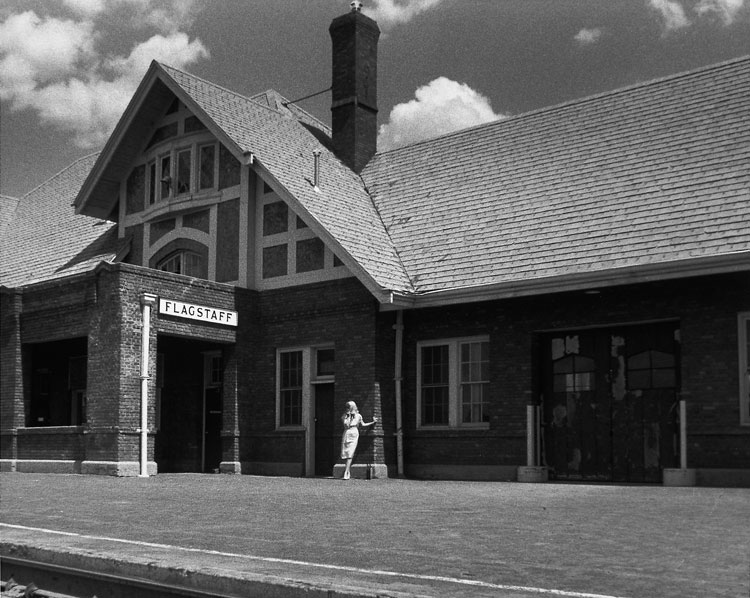
Cindy Sherman, Untitled Film Still #44, 1979. Gelatin silver print, 8 x 10 inches (20.3 x 25.4 cm). Gift of Barbara Lee, The Barbara Lee Collection of Art by Women. Courtesy the artist and Metro Pictures, New York. © Cindy Sherman
Cindy Sherman is known for identity-morphing “self-portraits” that explore female character types. Since her days as a student in Buffalo in the mid-1970s, Sherman has been taking increasingly flamboyant photographs of herself in staged environments, transforming her appearance with costumes, makeup, wigs, and props. She began the black-and-white photographic series Untitled Film Stills, 1977–80, shortly after moving to New York City. Ultimately comprising sixty-nine images, Untitled Film Stills presents images that reiterate stereotypes of postwar femininity. In this reimagining of the genre of portraiture, Sherman plays the dual roles of director and actor, viewer and viewed, maker and subject. In the 1980s, Sherman and her cohort in New York, including Jack Goldstein, Sherrie Levine, and Robert Longo, formed what has been called the “Pictures Generation” on account of their critical appropriation of everyday images of consumer and media culture.
Untitled Film Still #44 shows a woman standing expectantly on the platform of a train station. Leaning against a wall with her head turned over her right shoulder, she appears to be awaiting the arrival of a train and its passengers. She is smartly dressed in a pencil skirt and a scarf, an outfit that recalls, as does the train station, a previous era. One quickly envisions the person she awaits and what will come of their reunion. As in many of the Untitled Film Stills, Sherman’s use of familiar narrative tropes from Hollywood movies leads the viewer to complete the narrative as if filling in the next frame of a film.
The ICA/Boston possesses a number of Sherman’s photographs, including an expanding set of examples of the Untitled Film Stills series. Untitled Film Still #44 enhances the museum’s holdings of work by the most important contemporary photographers, including Philip-Lorca diCorcia, Rineke Dijkstra, and Nan Goldin, whose works continue to generate questions about the truth of the staged portrait.
2014.40